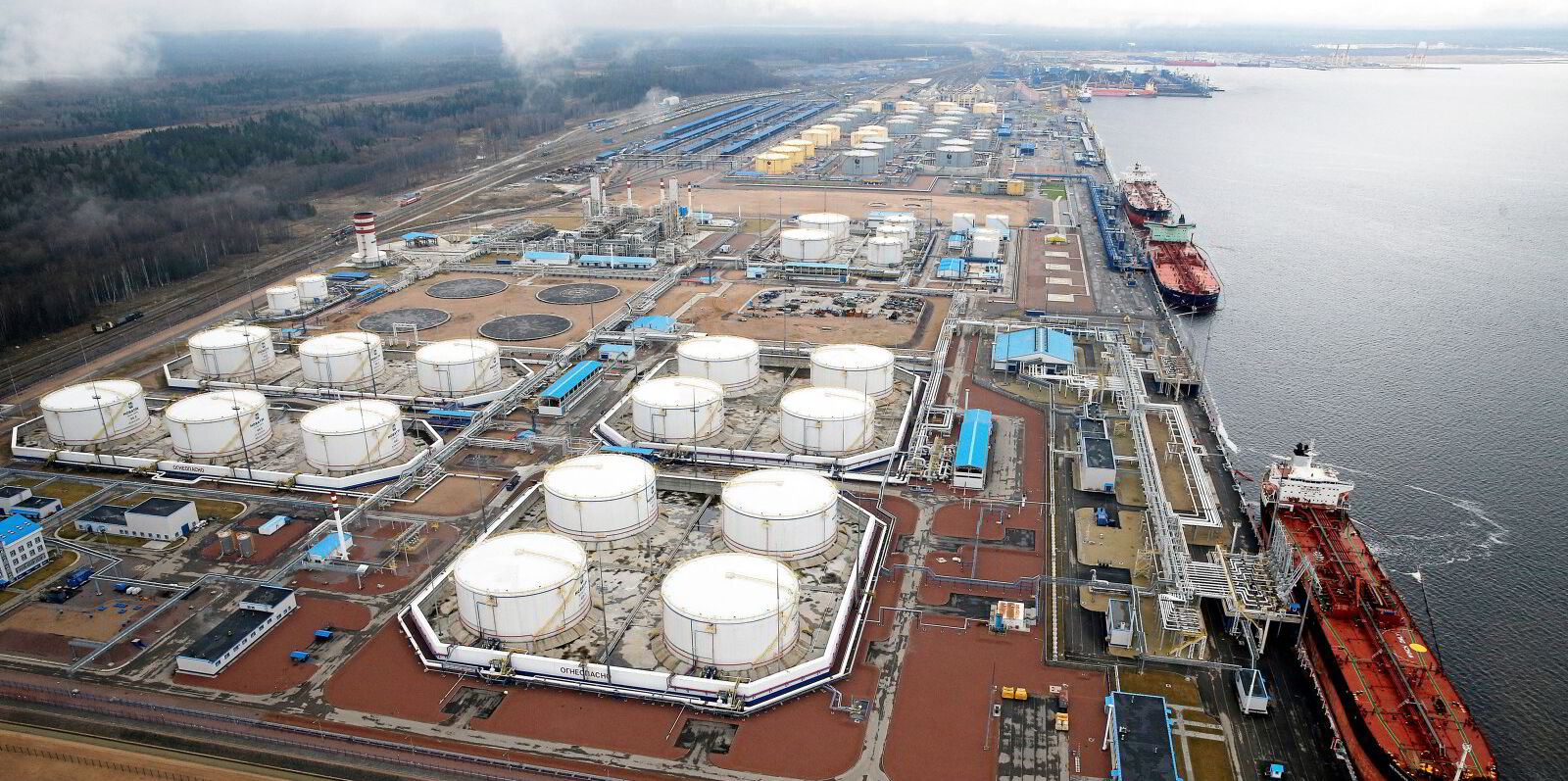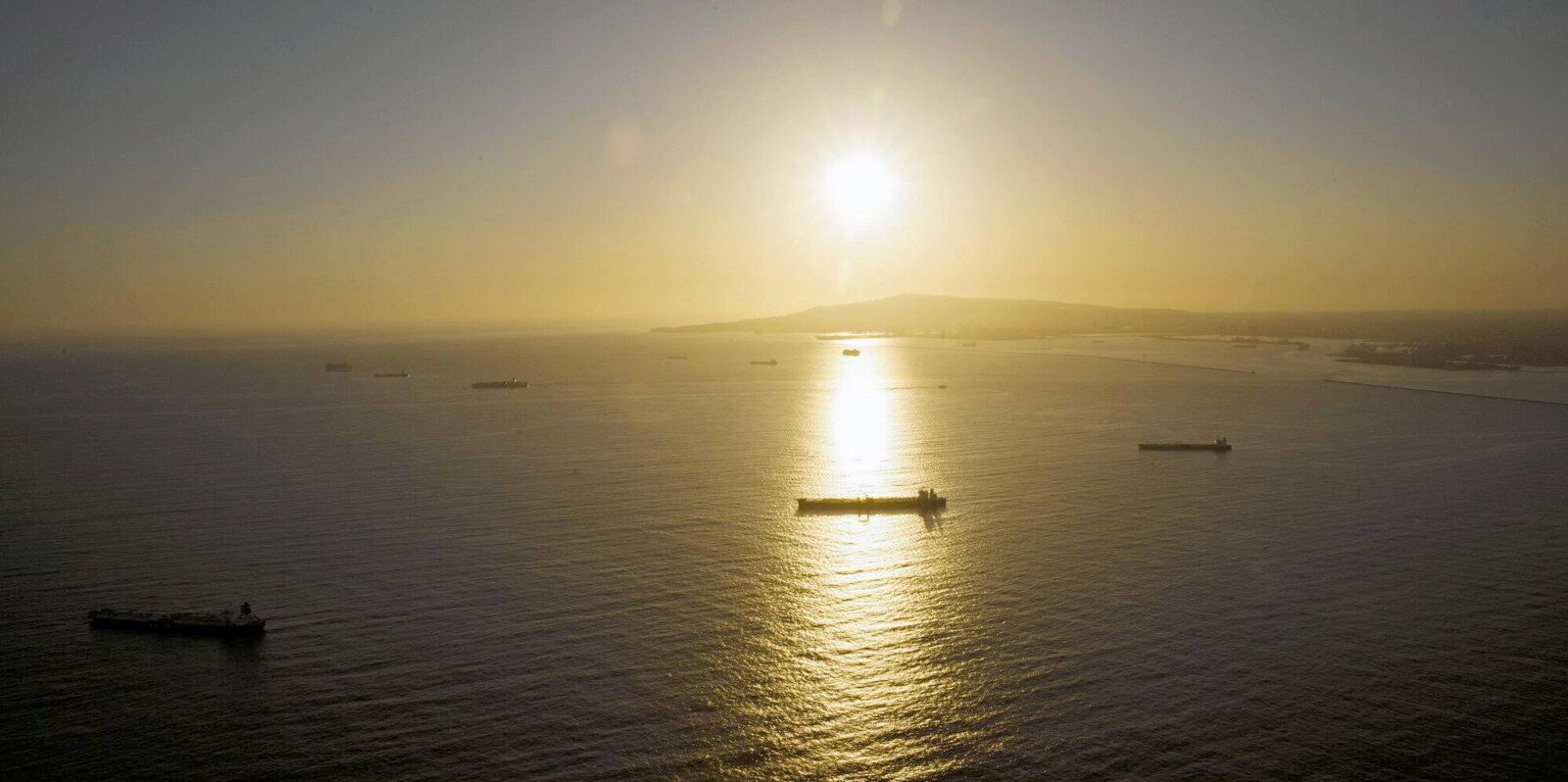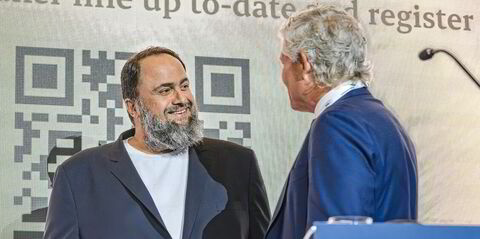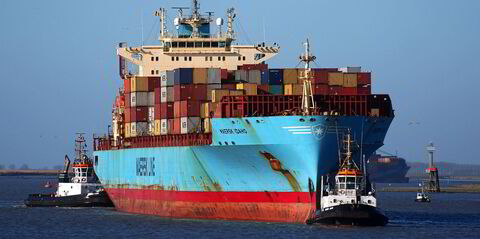One of the most notorious tankers in the shadow fleet has stopped off the coast of Russia after being blacklisted by the UK, according to ship tracking data.
The 106,500-dwt aframax Robon (built 1997) last signalled its position two days ago off the port of Ust-Luga, according to three commercial databases.
The Robon was one of four tankers blacklisted by the UK on Thursday, the first time that the government had designated individual ships after a change in the law in May.
It had been due to load 700,000 barrels of crude on the day of the designation, according to Kpler ship and cargo tracking data, which showed the Robon stopped in Luga Bay with the oil on board.
The Robon had secured particular notoriety after it was identified at the International Maritime Organization during discussions about the growing risk of an accident involving poorly maintained tankers operating in the shadow trades.
The IMO’s legal committee was told in March 2023 that ship, previously named Turba, had been last surveyed in 2017 and had not been inspected for 13 years. It was subsequently inspected by port state control in Yantai, China, where it was found to have a problem with its lifeboats but was cleared later that day.
Very high risk
Later that year, the 27-year-old tanker was filmed in 2023 by news agency Bloomberg during a ship-to-ship transfer of Russian oil while it was said to be spoofing its position. Both ships involved in the transfer were flagged by Cameroon, the only registry categorised by the Paris MoU on port state control as “very high risk”.
The Turba then headed to Asia but then was stranded for two days because of likely mechanical problems off the coast of Indonesia. It was subsequently renamed the Robon in December under new ownership.
Since then, it has loaded oil on four occasions from Russian ports for deliveries to Turkey and a ship-to-ship transfer off the coast of Greece, ship-tracking data showed.
The Robon is listed as owned by Seychelles-registered Crystal Crest Corp. It is managed by TechNav Shipmanagement of Kazakhstan. Contact details for both companies were not immediately available.
Since October, 40 tankers have been blacklisted by the US — amounting to about one-tenth of the estimated Russian shadow fleet — which has ended regular trading for many of them.
It remains to be seen if the UK blacklisting will have a similar effect. The US has significant power to alter trading patterns owing to the pre-eminence of the dollar in the global economy and the pressure that can be brought to bear on banks and other shipping services.
The six ships targeted on Thursday are not linked to UK-based insurers and the vessels already appear to be largely outside of the reach of regulators from the G7 nations opposed to Russia’s war in Ukraine.
Two of the other blacklisted tankers are on the move. The Cook Islands-flagged 113,000-dwt Ocean Amz (built 2008) is on a ballast leg and signalling for Tallinn, Estonia, according to Kpler.
The Gabon-flagged 116,000-dwt NS Laguna (built 2007) linked to Russian state carrier Sovcomflot, is also on a ballast leg heading to Ust-Luga, and was due to pass through the English Channel on Monday.
The fourth sanctioned tanker, the 53,100-dwt product tanker Canis Power (built 2005), was at a Turkish shipyard at the time of the designation, according to Kpler data.
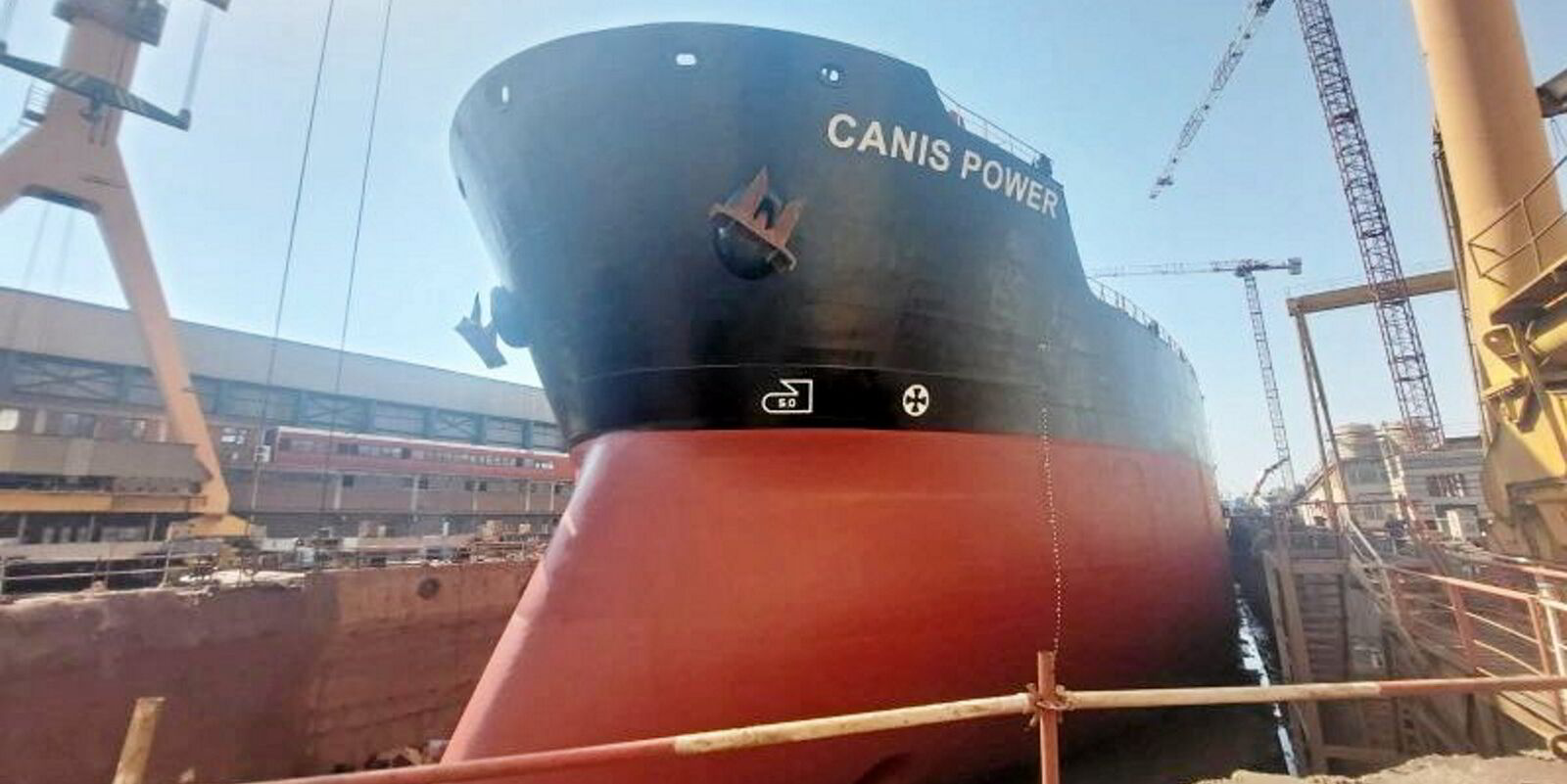
Two cargo ships were also sanctioned over alleged arms shipments in support of the Russian invasion but they had both previously been blacklisted by the US. One has continued trading from Russia, ship tracking suggests.
This new initiative is perhaps tacit recognition that existing measures are not achieving their aim
Neil Roberts
Neil Roberts, head of marine and aviation at the Lloyd’s Market Association, said: “In some ways, it is surprising that more individual vessels have not been sanctioned before and this new initiative suggests that the information being collected is now being put to good use.
“This new initiative is perhaps tacit recognition that existing measures are not achieving their aim.
“From industry’s point of view, this is a welcome development as only governments can enforce sanctions.”
Read more
- UK blacklisting of Russian insurer Ingosstrakh could backfire, industry warns
- UK blacklists Russian insurer Ingosstrakh and first shadow fleet vessels
- VLCC completes Russian oil transfer from three aframaxes off Morocco
- US puts seven Russian LNG carrier newbuildings on its blacklist
- EU mulls sanctions against Russian tanker owner Sovcomflot
